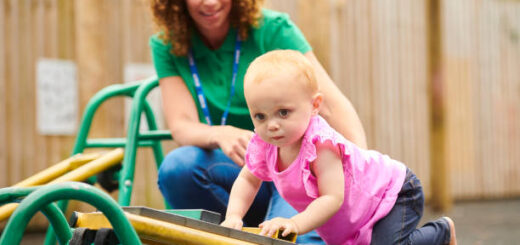Children are more likely to succeed if they live in this type of environment
According to a recent study, families with strong connections to their children have a higher chance of thriving throughout their lives.
Numerous studies have demonstrated that solid family bonds reduce the risk of adverse outcomes for children like high-risk behaviors and addiction to drugs; however, this study proved that there are positive results as well, according to the lead study’s author Dr. Robert Whitaker, director of the Columbia-Bassett research program at Columbia University in New York City.
“What was different about this study was it showed that family connection is associated with thriving and not just surviving or avoiding harm,” Whitaker declared.
Researchers surveyed more than 37,000 children in 26 countries. They discovered teenagers who had reported having the best relationship with their family and success.
The study, presented by the journal Pediatrics, was a study of children between the ages of 11 and 13 years old who were surveyed between 2016 and 2019.
The data were gathered throughout Europe, Africa, Asia, and South America from the International Survey of Children’s Well-Being, which is a study that the Jacobs Foundation backed. This Zurich-based foundation focuses on equipping schools worldwide with knowledge based on science to assist children to succeed.
Family connection was measured by the average score from 5 categories: caring safety, support, respect, and participation. In each category, participants were given a written statement and asked to rate the extent to which they agreed with it, ranging from 0 (do not think so) up to four (firmly in agreement). To gauge, for instance, the quality of care, children were asked if they agreed with the assertion, “I feel safe at home.”
The core of family bonding is that children feel loved and respected in their home, allowing them to understand strengths and weaknesses within a secure environment. At the same time, they develop their identities, Whitaker said.
Flourishing was measured through a mean score across six areas: self-acceptance, motivation in life, positive interactions with others, personal development in environmental mastery, and autonomy. The questionnaire structure was identical to the HTML0 survey structure for family connections. That is for family connections. Family relationships, but the scoring system varied from zero to 10.
In terms of flourishing, the kids must accept their weaknesses and strengths and then use their powers to determine their reason for being, He said.
Children can flourish, not just survive.
Children with the highest level of family bonds were 49 percent more likely to be successful when compared to those who had the lowest levels of family bonds, as per the study.
“A good life entails having a sense of purpose and meaning, which is what the flourishing scale in this study measured,” she declared.
Sign up with your email address for CNN’s “Meanwhile in China” Newsletter.
The highest scores for family connections and flourishing came from children who claimed they have two parents, enough food, and never worry about their family’s money.
Researchers then analyzed the data to determine family poverty levels, including financial status or food insecurity, to reduce their impact on results. After considering these factors, the strength of connections between families did not affect how children thrived.
How to improve family connections
Whitaker said that Adults can significantly influence the atmosphere within the home, which is why it’s essential to create an environment where children feel valued and heard.
He added that a fantastic way to strengthen family bonds is at the dining table. Adults must create a space that allows children to speak freely. When talking, adults should demonstrate that they’re interested in the words of their children and attempt to let their judgments slide, Whitaker added.
Reese said that adults do not have to be extravagant to be a part of their children’s lives. Meaningful conversationsShe added that meaningful conversations are more crucial to your relationship than going on costly excursions.
Silence is another effective method of communicating, He stated.
According to Whitaker, parents, children, or caregivers sharing time in silence, running errands, or doing chores can foster a bond,
“We don’t necessarily need to fill those moments with chatter or the radio,” he explained.
Other adults could influence the way children develop
Shortly, Whitaker said he wanted to investigate the effects that teachers and other community members are having on children.
“We suspect that sense of connection to non-parental adults probably adds to the likelihood that teen will flourish,” the author wrote in an email.
External relationships are crucial and significantly impact children, particularly in the early years of their lives and early childhood, stated Kelly-Ann Allen, an Educational and Developmental psychologist and professor at Monash University in Melbourne, Australia. She wasn’t involved in the research.
“If children experience healthy trusting relationships early, they are more likely to establish healthy trusting relationships as adults,” she added.



